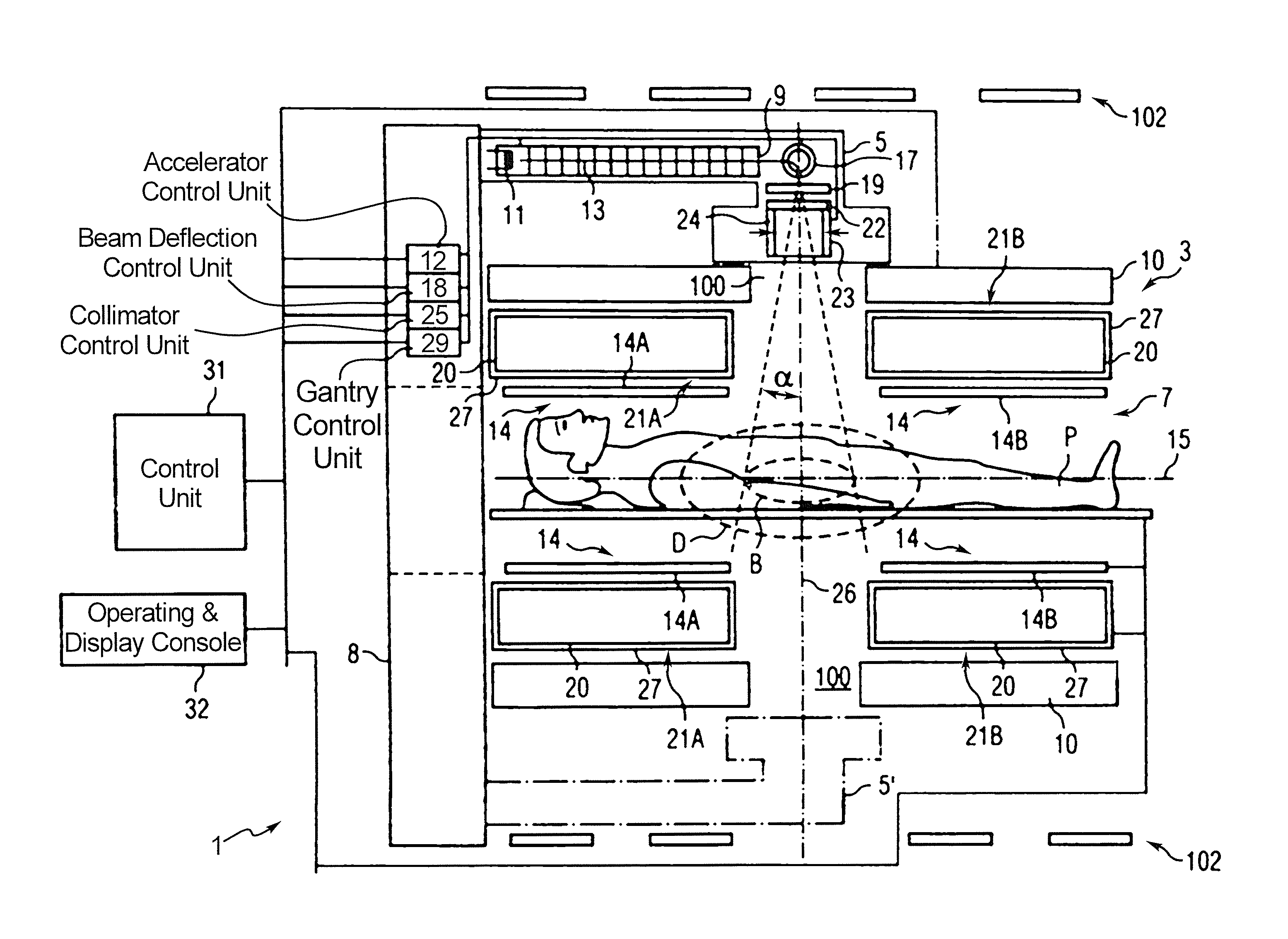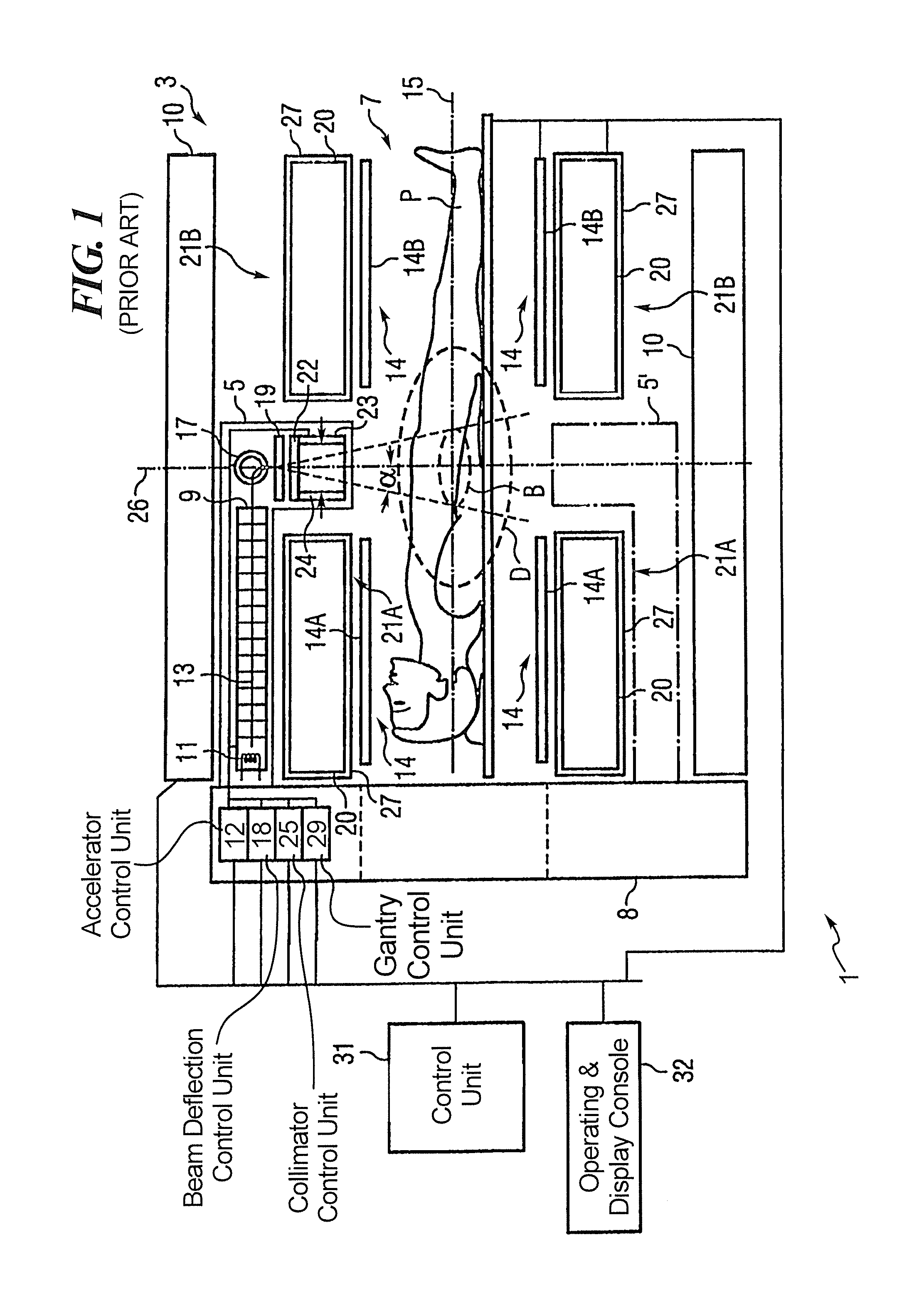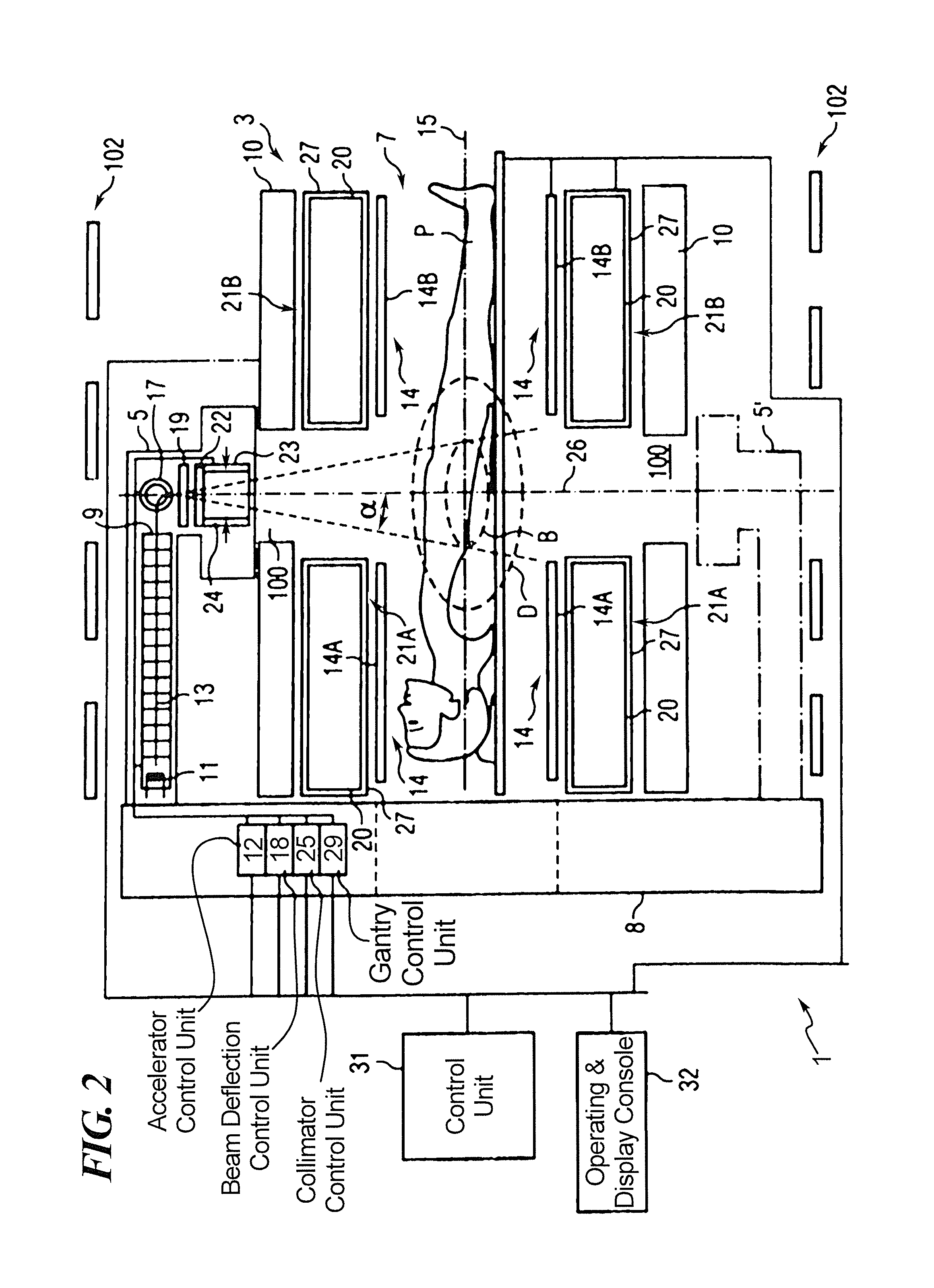Combined MRI and radiation therapy system
a radiation therapy system and mri technology, applied in the field of combined mri and radiation therapy equipment, can solve the problems of inability to intensity modulation, inability to detect stray fields, and inability to achieve significant amounts of dense material screening, etc., to achieve the effect of reducing the diameter of the main magnet coil and reducing the magnitude of a stray field
- Summary
- Abstract
- Description
- Claims
- Application Information
AI Technical Summary
Benefits of technology
Problems solved by technology
Method used
Image
Examples
Embodiment Construction
[0037]FIG. 2 shows a combined MRI and radiation therapy system 2 according to an embodiment of the present invention. Main magnet 10 is provided with “Letterbox” slots 100 through the cryostat and between coils of the main magnet to allow the radiation beam to reach a patient P at the irradiation center B. There may be some circumferential positions which are not available for passage of the radiation beam, for example where mechanical support pillars join the two parts of main magnet 50 together, but a good range of operation may be provided for without difficulty. LINAC 9, target 19 and collimator 23 are provided radially outside of the main magnet 10, but radially inside shield coils 102. In an embodiment of the invention, shield coils are placed inside the same cryostat as the main magnet, with a recess formed in the cryostat to accommodate the LINAC 9 and associated equipment. Gantry 8 is able to rotate about axis 15, enabling the radiation beam to be applied to the irradiation...
PUM
 Login to View More
Login to View More Abstract
Description
Claims
Application Information
 Login to View More
Login to View More - R&D
- Intellectual Property
- Life Sciences
- Materials
- Tech Scout
- Unparalleled Data Quality
- Higher Quality Content
- 60% Fewer Hallucinations
Browse by: Latest US Patents, China's latest patents, Technical Efficacy Thesaurus, Application Domain, Technology Topic, Popular Technical Reports.
© 2025 PatSnap. All rights reserved.Legal|Privacy policy|Modern Slavery Act Transparency Statement|Sitemap|About US| Contact US: help@patsnap.com



